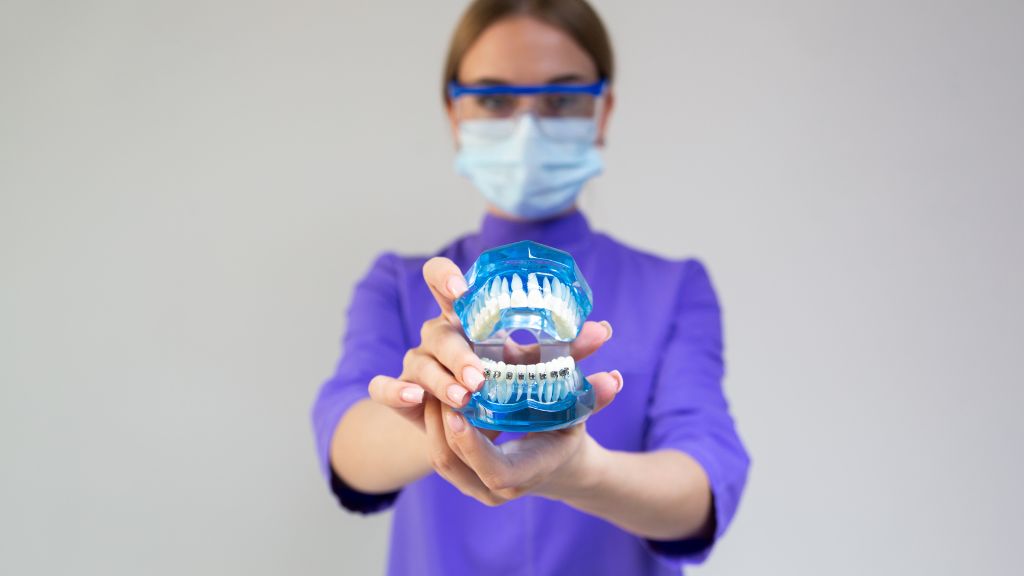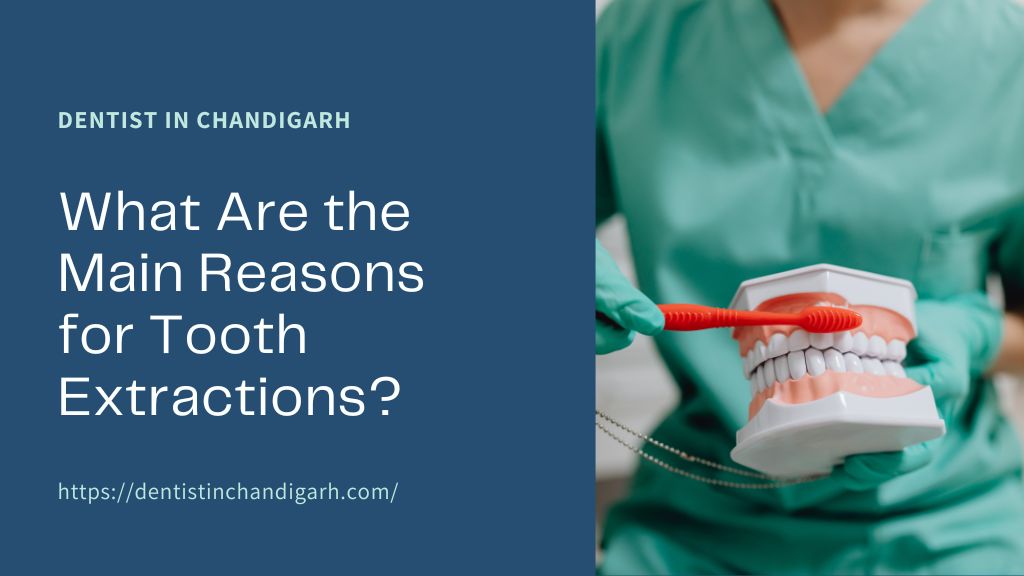Most of us expect our teeth to last a lifetime, and with proper care, they often do. But sometimes, a tooth becomes damaged beyond repair, or keeping it in place may put the rest of the mouth at risk.
When that happens, dentists recommend removal, a process known as an extraction. Though the idea may sound uncomfortable, modern techniques make the procedure much smoother than people imagine.
Understanding why teeth sometimes need to be removed helps patients feel more at ease. It also highlights the importance of early dental care to avoid reaching the stage where an extraction is the only option.
This article will explore the main causes of Tooth Extractions, the process itself, and how people can protect their smiles for the future.
Common Reasons for Tooth Extractions
Severe Tooth Decay
Tooth decay starts small, often as a tiny cavity caused by bacteria feeding on sugar. At first, fillings can treat the problem. But if left untreated, decay continues to spread, eating away at the tooth’s structure.
Once the cavity becomes too large or reaches deep into the pulp, saving the tooth becomes difficult.In many cases, root canal therapy can remove the infection. However, if too much damage has already been done, extraction is necessary.
Visiting the best dentist in Chandigarh at the right time can make the difference between saving a tooth and losing it completely. Removing the decayed tooth prevents bacteria from spreading into the jawbone or bloodstream.
Advanced Gum Disease
Another major reason for tooth loss is gum disease, also called periodontal disease. In its early stage, it may cause swelling or bleeding while brushing.
But as it advances, gum tissue and bone holding the teeth in place weaken. Teeth may start to loosen or shift, and at this stage, they cannot always be saved.
For people with advanced gum disease, removing affected teeth allows the gums to heal and protects the surrounding healthy teeth from becoming unstable.
Impacted Wisdom Teeth
Wisdom teeth are the last to erupt, usually between ages 17 and 25. For some people, these teeth come in straight and cause no trouble. But in many cases, the jaw is too small to fit them.
When that happens, the teeth get stuck under the gums or push sideways into neighboring teeth.Impacted wisdom teeth can cause swelling, pain, and infections.
They may also damage nearby teeth by pressing against them. Dentists often recommend removal to prevent future problems, even if the teeth aren’t currently painful.
Dental Trauma and Injury
Accidents and Sports Injuries
Falls, accidents, or sports injuries sometimes cause teeth to chip or break. If only the outer enamel is affected, dental bonding or a crown may restore the tooth. But when the break extends below the gum line or the tooth shatters completely, it cannot be repaired.
Removing the damaged tooth prevents pain, infection, and further complications. This is especially important in cases where sharp edges of broken teeth could harm the inside of the mouth.
Cracked or Split Roots
While crowns can fix a fractured tooth, cracks that run through the root are harder to treat. Root cracks allow bacteria to enter deep inside, leading to infections that can’t be cured with regular treatments. In these cases, extraction is the safest way to protect the patient’s health.
Overcrowding and Orthodontic Reasons
Creating Space for Alignment
Sometimes, patients need teeth removed not because of disease but to allow for proper orthodontic treatment. If the jaw is too small, teeth may overlap, twist, or push against each other.
Braces or aligners can only work if there is enough room for the teeth to move.Dentists and orthodontists may remove one or more teeth before starting braces, making space for the remaining teeth to align properly. This helps achieve a balanced smile and healthier bite.
Supernumerary Teeth
A small percentage of people are born with extra teeth, known as supernumerary teeth. These can block normal permanent teeth from coming in or cause crowding. Removing them helps maintain proper alignment and reduces long-term dental issues.
Infection and Abscess
Spread of Tooth Infections
Bacteria that reach the pulp inside a tooth can cause severe infections. Root canals are often the first choice to save the tooth, but if the infection is too widespread or the structure is too weak, extraction may be required.
This prevents the infection from spreading into the jawbone, gums, or other parts of the body. In severe cases, untreated infections may even impact general health, making removal essential.
Risk for Medically Vulnerable Patients
For patients with weaker immune systems, even a small infection can become dangerous. Doctors often recommend removing infected teeth to protect overall health, especially before starting treatments that lower immunity.
Medical Reasons for Tooth Removal
Before Chemotherapy or Transplants
People undergoing chemotherapy or organ transplants have a reduced ability to fight infections. For these patients, even a minor dental problem can become serious. Dentists may remove unhealthy teeth beforehand to reduce risks during treatment.
In some cases, they might also recommend preventive options like a teeth aligner to avoid complications caused by overcrowded or misaligned teeth, ensuring better oral health before the medical procedure begins.
Radiation Therapy Patients
Individuals receiving radiation in the head or neck area may also need tooth removal. Radiation can weaken the bone and gums, making it harder to heal from dental problems. Removing risky teeth in advance prevents complications.

Wisdom Teeth and Their Challenges
Pain and Swelling
Wisdom teeth often cause discomfort when they try to erupt without enough room. Patients may experience swelling in the gums, jaw pain, or difficulty opening their mouths. Extracting these teeth usually provides quick relief.
Preventive Removal
Even when wisdom teeth aren’t painful, dentists sometimes recommend early removal. This is because wisdom teeth are harder to clean, increasing the chances of decay and gum infection later. Preventive extractions can save patients from serious problems in adulthood.
Regional Awareness: Tooth Extractions in Growing Cities
Dental Health
In larger cities, dentists often see patients dealing with crowded teeth, wisdom tooth pain, and untreated gum disease. Busy lifestyles sometimes lead people to delay regular checkups. As a result, problems are caught later, and Tooth Extractions become necessary.
Advances in Urban Clinics
Urban dental practices often have better access to advanced technology. For example, many clinics use digital imaging and surgical tools that make extractions quicker, safer, and less painful. Patients today can expect far more comfortable care than in the past.
What to Expect During a Tooth Extraction
The Procedure Explained
Most extractions are performed under local anesthesia, which numbs the area so the patient feels no pain. The dentist gently loosens the tooth and removes it using specialized instruments. For impacted teeth, a small incision may be made to help with removal.
Complex cases are sometimes handled by oral surgeons. But even then, the procedure is usually completed in one visit. Patients are monitored closely to make sure they’re comfortable throughout.
Aftercare and Recovery
After the extraction, patients are asked to bite on a gauze pad to stop bleeding. They should rest and avoid eating hard foods until healing begins. Ice packs can help reduce swelling, and over-the-counter pain relief is often enough to manage discomfort.
Healing usually takes one to two weeks. Following the dentist’s instructions is important for preventing complications such as dry socket, which occurs when the blood clot protecting the site is dislodged.
How to Reduce the Need for Extractions
Preventive Dental Visits
Regular checkups every six months help dentists catch problems early. A small cavity or mild gum disease can often be treated without removing the tooth. Early detection gives patients more options to save their natural teeth.
Daily Oral Care
Brushing twice a day with fluoride toothpaste, flossing daily, and limiting sugary snacks are simple but powerful habits. Good hygiene lowers the risk of decay and gum disease, the leading causes of extractions.
Protecting Teeth During Sports
Many cases of dental trauma can be avoided by wearing a mouthguard during contact sports. This small step can prevent fractures, chips, and emergency removals.
Patient Perspective: Why Early Action Matters
Imagine a teenager who skips regular dental visits and develops cavities. At first, the pain is mild, so it’s ignored. Over time, the cavity grows larger, reaching the nerve of the tooth.
By the time they visit a clinic like ours, the tooth is so damaged that saving it is no longer possible. In this case, extraction is needed.
This example shows how early action can make the difference between saving a tooth with a filling and losing it completely. Patients who visit their dentist regularly are far more likely to avoid extractions in the future.
Myths and Misconceptions About Tooth Removal
Myth: Extraction Is Always Painful
Thanks to modern anesthesia and techniques, tooth extractions today are usually painless. Patients may feel pressure but not sharp pain.
Myth: Losing a Tooth Is the End of Oral Health
Many people fear that losing a tooth will affect their appearance or ability to eat. In reality, modern dentistry offers solutions like implants, bridges, and dentures to restore function and appearance after removal.
Myth: Only Adults Need Extractions
Children may also need teeth removed in certain situations, such as severe decay in baby teeth, or to prepare for orthodontic treatment. Extractions are not limited to adults alone.
Conclusion
Teeth are strong, but they’re not indestructible. Severe decay, gum disease, crowding, trauma, and infection are some of the main reasons why dentists recommend removal.
By understanding these causes, patients can take steps to prevent them with better daily care and regular checkups.While losing a tooth may seem overwhelming, it is often the safest way to protect overall oral health.
With modern tools and gentle approaches, dentists make the process far more comfortable than people expect.If you ever face a dental issue and wonder about your options, reaching out to a trusted professional is the best first step.
At Dentist in Chandigarh, patients receive careful attention and treatment that focuses on both comfort and long-term health. Taking care of your teeth early can help you keep your smile healthy and avoid extractions in the future.


